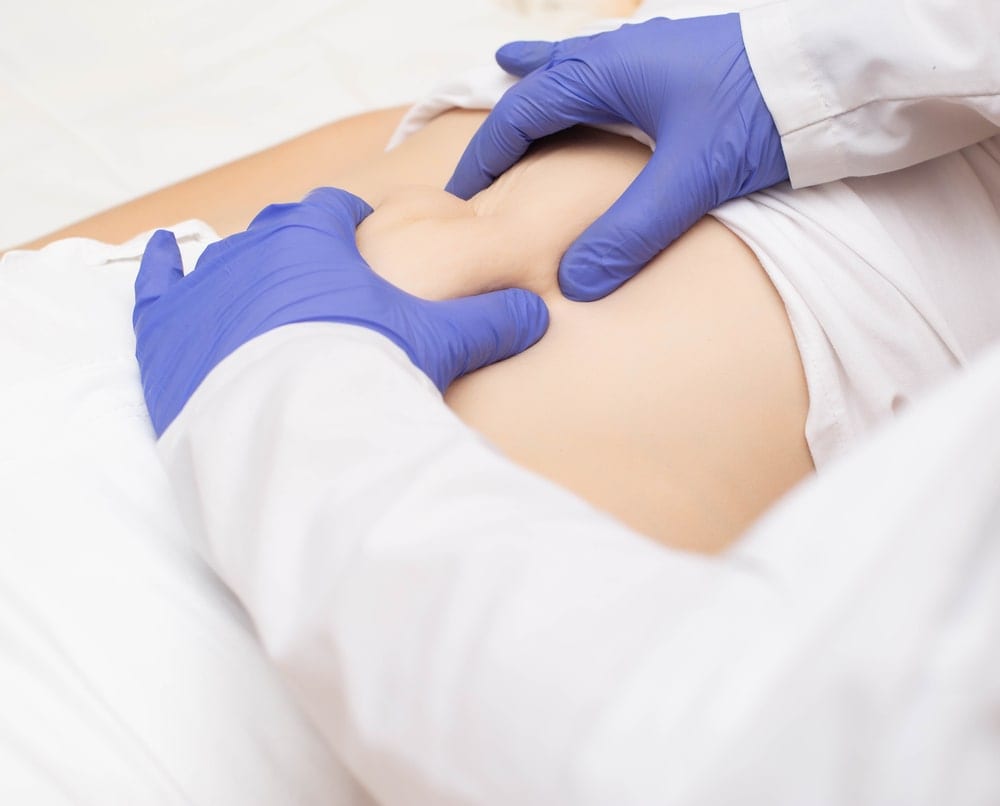Henderson Hernia Surgeon
What does a hernia surgeon treat?
A hernia surgeon evaluates for issues created by the onset of a hernia in a patient’s body. After thoroughly analyzing and assessing, the hernia surgeon then determines whether the hernia needs to be repaired surgically. A hernia is commonly found in a patient’s abdomen but can occur anywhere between your chest and hips. In some cases, hernias can also appear in the upper thighs or the groin. Hernias are not fatal but they do not repair on their own. Dr. Dasari may prescribe minimally invasive surgery to repair the hernia at Henderson Hospital or an outpatient surgery center closest to his patients.
What are the symptoms of a hernia?
The most common hernia symptom is a bulge in the abdomen or groin area that can be easily observed by the naked eye. Heartburn, swallowing difficulty and cough are some other signs which a Henderson hernia surgeon might evaluate. Weakness, the sensation of dragging, and feeling pressure in the groin is also a symptom which can indicate you have a hernia.
What types of hernias does Dr. Dasari treat in Henderson?
Umbilical hernia: This hernia appears as a bulge in the belly button area of your abdomen.
Ventral hernias: Also called abdominal hernias because they occur along the abdominal wall.
Inguinal hernia: This type of hernia develops in the groin area.
Incisional hernia: These might be developed after a tissue becomes weakened due to incisions made while receiving a surgery.
Hiatal hernia: These hernias appear when the stomach pushes through the diaphragm into the lung cavity.
Chronic hernias: Recurring hernias which have been repaired before but still continue to cause
Traumatic injury hernias: Hernias caused by an auto or work-related accident.
Parastomal hernia: For individuals with stomas and ostomies, the tissue surrounding the intestinal passage, can become weakened over time and this leads to a parastomal hernia.
Sports hernias: This Hernia occurs when there is injury or strain to the groin muscles and/or hip
What are the treatment options of a hernia?
A hernia surgeon will review the location of the hernia before deciding the required treatment. Two main types of hernia repair surgeries are:
Open Surgery: This process involves repair of the hernia with the use of mesh, sutures, or sometimes, both methods. The surgical wound is then sealed with the help of staples, sutures, or surgical glue.
Laparoscopic Repair: This procedure includes creating small incisions in the patient’s abdomen. A small tube consisting of a laparoscope is inserted through an incision. The hernia is then repaired with the use of systematic mesh.
Henderson Hernia Surgeon Dr. Chanu Dasari
Dr. Chanu Dasari is a renowned hernia surgeon in Henderson. He is an affiliate of Henderson Hospital, providing his patients the best inpatient and outpatient surgical care near them. If you would like to have your hernia evaluated by Dr. Dasari, contact his clinic, Minimally Invasive Surgery, at (702) 602-6600 to schedule a consultation.









